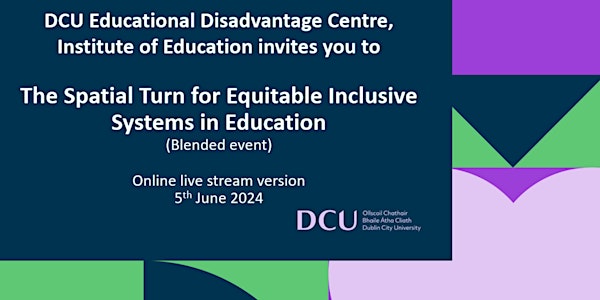This international symposium with Professor Michael Apple's keynote presentation at 17:15 aims to gather interdisciplinary contributions about space for the development of equitable inclusive systems in education . An acceleration of focus on spatial dimensions has given recognition to the role of relational space, not only as a vehicle for dividing practices, surveillance and regulation, but also in investigating connective potentials in space
As well as being linked to economic issues of poverty, marginalisation is also a spatial concept. It assumes distance and exclusion. Building on the spatial turn proposed in The Routledge International Handbook for Equity and Inclusion in Education (2024), how can a spatial turn for education offer fresh insights for inclusion and exclusion in education, as well as for transitions ? How can further shifts be developed from diametric spaces of exclusion, closure, power hierarchies, othering, system blockage and fragmentation in and around schools, towards concentric spaces of inclusion, care and openness ?
